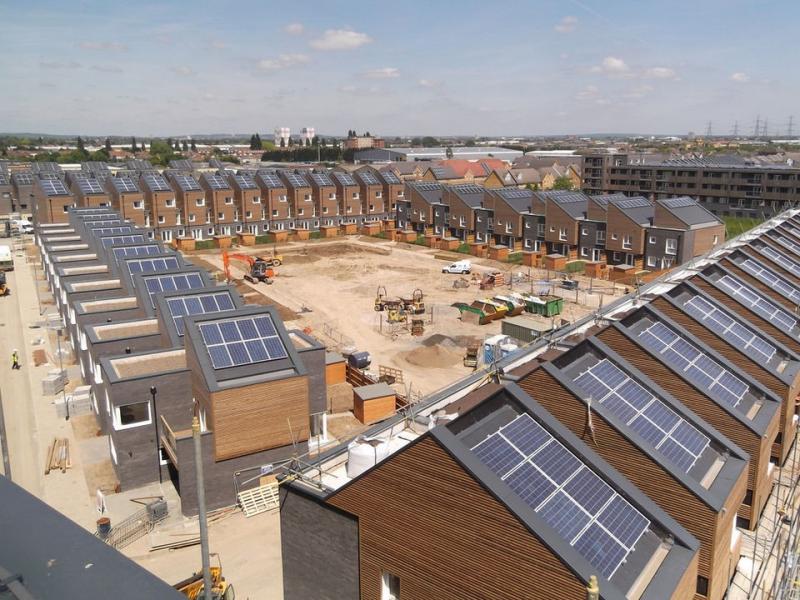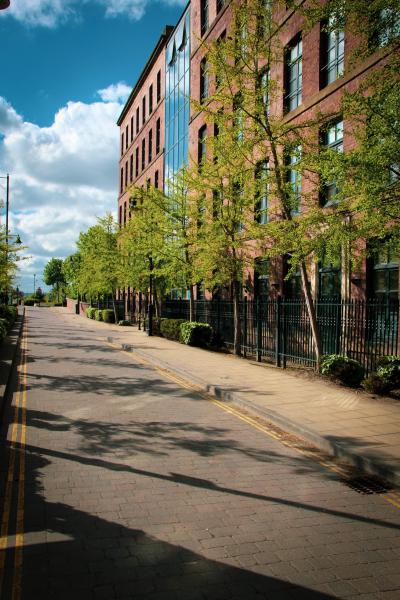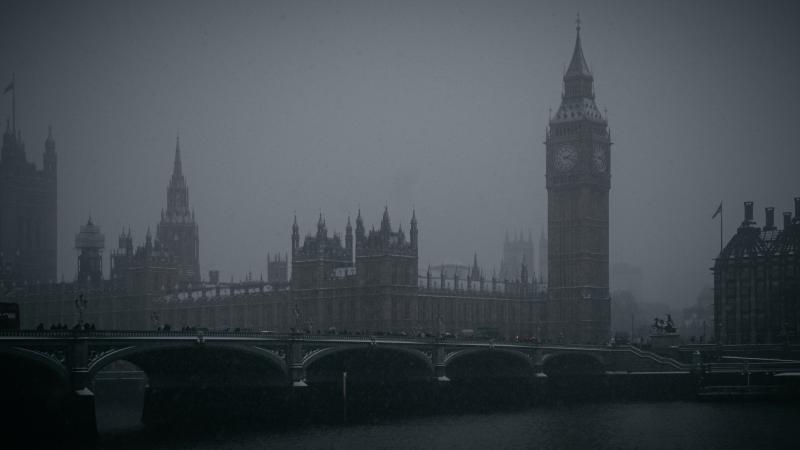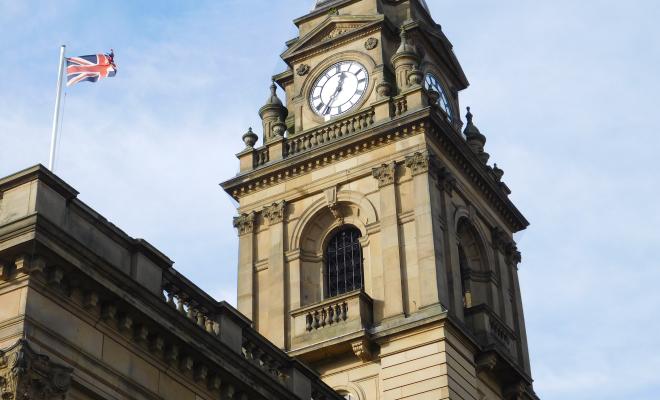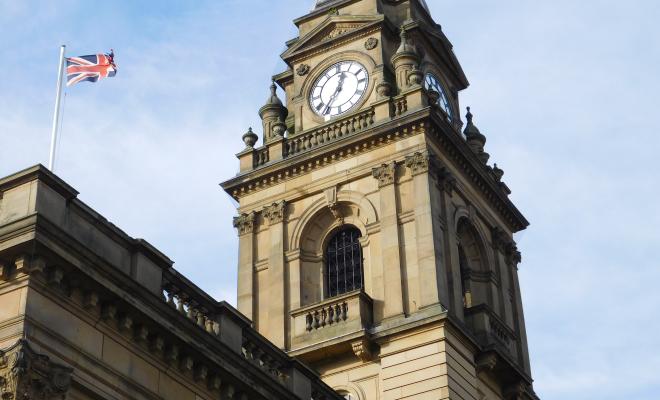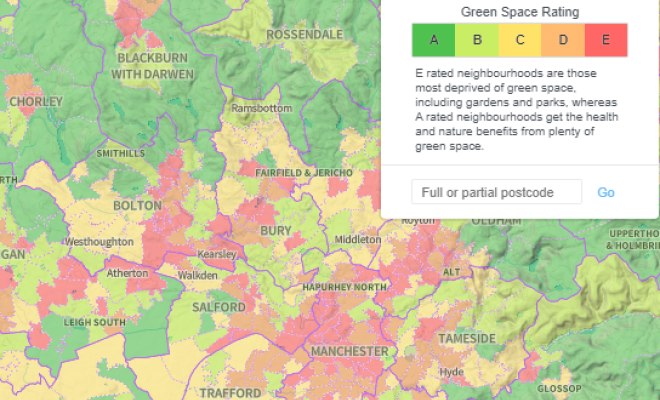Sandra Bell08 Dec 2020
The government's own expert advisors on the Climate Change Committee (CCC) have urged it to step up action to achieve deeper emissions cuts by 2035. But less attention has been given to another vital message – that action is needed at every level of government. The reality is that the short-term emissions cuts needed – and indeed the legal target of net zero by 2050 – can’t be delivered without action by local authorities.
Most councils have declared a climate emergency and many are developing climate action plans. These plans need to be ambitious and comprehensive. But even the most forward-thinking councils are stymied by inadequate resources and a lack of powers in key areas. Friends of the Earth, working with local government, other NGOs and academics, has set out what is needed from national government, and now the Climate Change Committee has also called for more support to enable local action.
Why local action is vital
Local authority action plans represent the "locally determined contributions" to the national Net Zero target. This is bottom-up climate action that meets, or in some cases exceeds, the top down climate objectives of the UK and devolved governments and results in delivery on the targets.
Councils are essential for reaching the UK’s legislative target to reach net zero emissions by 2050. In key areas, like transport and planning, their service delivery and regulatory functions put them front and centre in reducing carbon emissions.
Equally importantly, the relationship that councils have with their communities means that they can engage partnerships in joint action by bringing residents, institutions and businesses on board. As the CCC points out, "they are the closest form of government to local people, and know what works best in their areas”. Councils are best placed to ensure that there’s a just transition to a zero-carbon economy, making sure no one is left behind or unheard, and targeting action to create healthy and resilient places where it’s most needed.
Local knowledge and action is crucial because we know that the direct and indirect health effects of climate change will not be felt equally across society. Older people are at most risk of extremes of heat and cold. People living in deprived areas have less access to green space, are more likely to experience urban heat-island effects. Tenants are less able than owner-occupiers to modify their homes to adapt to climate change.
With more people in poverty in the UK following the COVID-19 pandemic this has become even more important. Levelling up across the UK or within the boundaries of each local authority area won’t happen without local knowledge and action. And local action needs backing from national government.
3 ways councils must deliver climate action
There are three ways in which councils need to deliver cuts in emissions:
- Cutting councils’ own emissions is an important starting point and will show leadership. For example, councils should improve energy efficiency in their own buildings, and switch their fleets to electric vehicles. All councils should be doing this now, although it will only tackle about 2% of total emissions in their areas.
- Councils can have a bigger impact through their enabling role, by using their powers and responsibilities as planning or transport authorities, for example. Councils can influence 40 to 70% of emissions in their areas. They should be going as far as they can with the existing powers and resources they have.
- Councils can inspire others – encouraging and enabling businesses and residents to take action. All councils should be doing this now.
We’re at a good starting point, with most councils showing willingness to act. Around 75% of councils have declared a climate emergency and many of those have produced action plans. Now we need to turn that 75% into 100% and all councils to turn declarations into ambitious action plans and start delivering real change. Councils should not be afraid to speak out when they lack the powers and resources to deliver.
An ambitious and comprehensive approach is needed
Actions taken now, locally, will grow the pipeline of projects, jobs and skills to scale up delivery of zero-carbon buildings and transport, waste reduction and low carbon land use. For local authorities, this does not entail focused emissions cuts in separate sectors, but means transforming whole places towards net zero, working with residents, communities and businesses to deliver the right changes and investments for the area. This needs a bold yet adaptable approach, and it needs proper funding and powers in the right places.
Tackling climate change is not like delivering a traditional council service – such as emptying the bins – from a single department. It’s relevant to everything the council does and must be front and centre of all local government decision-making and investments, industrial strategies, local plans, and partnerships across the local authority area, such as Local Enterprise Partnerships. This will require commitment at senior level in the council, and engagement and training for all staff.
Key actions for council climate action plans
Local councils need to set out climate action plans with ambitious targets for emissions reductions in key sectors, setting out priorities for their areas based on an assessment of local emissions sources. Friends of the Earth set out 50 specific actions that councils should take, including:
- Retrofitting all social housing to high efficiency-standards – existing buildings must be improved, such as installing better insulation and heat pumps.
- All new housing to consist of zero-carbon buildings and have good public transport (design and location).
- Identifying locations for renewable energy, including onshore wind, which is still needed despite ambitious plans for offshore wind.
- Creation of extensive and safe walking and cycling routes.
- New green space so everyone has access to nature (linking carbon storage, nature, our own wellbeing).
- Healthy low-meat diets in schools (we need a 50% cut in meat and dairy consumption in UK).
The CCC also recommends that local authorities develop climate action plans that prepare the area to transition to net zero from 2030, including immediate actions to kick-start delivery now.
Plans into action
Cornwall, Oxfordshire, Islington, Manchester, Bristol and Nottingham are among the councils that have already set out comprehensive plans or frameworks for climate action in their areas.
Of course, targets in plans need to be followed by delivery. And there are some great examples of councils delivering in partnership with communities and companies in their areas. This exemplary kind of action needs to be scaled up and become the norm.
Nottingham City Homes, in partnership with the city council, was the first UK housing association to pilot net-zero retrofits – upgrading cold bungalows and terraced housing to the highest level of energy efficiency by using the Energiesprong approach. Plymouth boasts the biggest development of new Passivhaus housing. 72 new homes were facilitated by Plymouth City Council, which offered a former school site to developers building affordable housing for £1, as part of “Get Plymouth Building”. York is on track to have the biggest fleet of electric buses outside London – cutting air pollution in the city as well as climate emissions. Bristol city council plans to double its tree cover and achieve carbon neutrality in the next 30 years, targeting new planting to areas of the city where people lack green space.
Climate action will deliver co-benefits
It’s a challenging time for local government. Resources are already stretched, and now we’re asking them to step up action on climate and nature. This makes it even more important that councils and the communities they serve understand the co-benefits of taking action to cut emissions. For example:
- Improving the energy efficiency of homes will deliver health benefits, by reducing fuel poverty, and economic benefits, with great potential for job creation.
- Increasing tree cover will also increase climate resilience by reducing flooding and overheating, and improve health by reducing air pollution and increasing wellbeing.
- Creating new green space will help reduce inequalities. New research by Friends of the Earth has shown that 42% of England’s black and brown communities live in neighbourhoods that are the most deprived of green space.
The Local Government Association has estimated that 700,000 direct jobs could be created in England's low-carbon and renewable energy economy by 2030.
The co-benefits delivered by ambitious climate action at local level show that it’s a no-brainer for national government to invest in councils to deliver them.
A role for the really local – town and parish councils
Parish and town councils may not have the same powers as local authorities, but there are 10,000 local councils across England and 750 community councils in Wales that have an important role to play in taking local action to address the climate and nature emergency and be a force for change.
Using powers in partnership
Like local authorities, town and parish councils understand their community and their patch – arguably they’re closest to local people and can be key allies in engaging the whole community. And in an official role as consultees to local authorities they can support net zero-carbon development such as onshore wind turbines, which can face local opposition, and back spending on safe routes for walking and cycling.
For example, Bodmin Town Council is working with Cornwall Council, assisting the community with its aim to make Cornwall carbon neutral by 2030. And Kendal Town Council has set up a citizen’s jury to find out what actions local people want to take to tackle climate change.
Town and parish councils, in collaboration with their communities, can also have a direct influence on future development through the neighbourhood plan. For example, by protecting green spaces or identifying sites for renewable energy or new green space. Worryingly the future of neighbourhood planning and other means of public participation is in doubt with the government’s proposals to overhaul the planning system.
Leading by example
Local councils should use their budgets to support carbon-cutting initiatives. Baildon Town Council, working with the local Friends of the Earth group, is among several town councils that have formed local partnerships to plant trees. East Ilsley Parish Council in Berkshire is directly involved in creating a community orchard and planting wildflower areas in the village. Frome Town Council has set up an electric-vehicle hire club and also offers free training about domestic energy use – how to reduce energy bills and how to encourage and enable people to turn energy-related advice into action.
The support that councils need
The CCC has recommended that the government consider introducing a duty on local authorities to act in accordance with Net Zero, and to develop Climate Action Plans. This will help, but only if it’s properly enforced and councils are adequately resourced and empowered to deliver it. A duty is meaningless if national policy fails to support or even contradicts what councils are trying to do. The existing biodiversity duty has failed to stop the decline of nature for this very reason.
Councils have been warning for some time that they won’t be able to deliver action at the scale and pace commensurate to the climate and ecological emergencies without additional powers and resources.
So it’s welcome that the support needed to turn duty into action is acknowledged by the CCC, which says that "Any new duty should be fully funded" and warns that tensions between national policy priorities will hamper local authorities' ability to deliver their part of meeting Net Zero unless they're addressed.
Around 100 councils recently joined Friends of the Earth, local government organisations and academics to back a blueprint for how the national government should support local authorities to act.
Priority asks include:
- Invest more in low-carbon and climate-resilient infrastructure, including public transport networks and renewable energy.
- Prioritise and focus support for reskilling and retraining for green jobs, so that local authorities can target training where it’s needed, like installing heat pumps.
- Ensure that homes are fit for the future, by investing more in retrofitting to high energy-efficiency standards, particularly social housing, and ensuring councils can require that all new houses are zero carbon.
- Make it easy for people to walk, cycle, and work remotely, by increasing funds for active travel and enabling local authorities to permanently allocate dedicated space to walking and cycling
- Accelerate tree planting, peatland restoration, green space expansion and other green infrastructure, including resourcing local authorities to maintain existing parks, plant trees and address gaps in green-space access in their areas.
How’s the government doing?
A stark example of competing priorities is the tension between building new homes and delivering low-carbon, well adapted development.
The government’s 10-point plan, spending review and infrastructure strategy fall far short of what’s needed and – combined with policy contradictions – fail to adequately support local delivery of solutions. Areas where the government needs to step up action in relation to the priorities above include:
- More investment to retrofit existing buildings with heat pumps and high levels of insulation, with a focus on social housing, which councils are best placed to deliver.
- The government’s reintroduction of subsidies for onshore wind is welcome. But local authorities are still prevented from supporting wind power by the strict requirements of national planning policy.
- Too much public money is still being committed to road building and not enough to public transport, walking and cycling, making it hard for local authorities to transform the way people travel in their areas.
- Current proposals for planning reform would remove control from local authorities for a lot of development, especially in proposed growth areas in the north, undermining their ability to deliver high-quality zero-carbon development.
- Budgets for maintaining parks have been slashed over recent years. Now, at least £4 billion a year over 5 years is needed to address current gaps in access to green space.
The CCC warns that local authorities "cannot deliver effectively and efficiently without longer term policy and funding certainty to underpin investment decisions. Without some level of coordination from Government, the UK risks pursuing a fragmented strategy towards Net Zero". The CCC points to national policy contradictions such as housing targets conflicting with the requirement for local planning policy to deliver on net zero. It also highlights the need for significant long-term investment in retrofit, heat-decarbonisation infrastructure and public transport.
Conclusion – we need to work together because we’re all in this together
Cities, Combined Authorities and local leaders have identified the barriers to action in delivering Net Zero locally and are calling for increased powers, funding and devolution to enable them to get on with it.
In 2020, Friends of the Earth and other NGOs joined forces with local government organisations and academics to set out what councils needed from the national government. We did so because, although we may not agree on every detail, we have the same aspirations to tackle the climate and nature emergencies in a way that also addresses health inequalities. And we know that we can be stronger working together.
The same applies at the local level. Friends of the Earth has over 200 local action groups that can act as critical friends to councils – pushing councils to develop strong Climate Action Plans, while at the same time helping to bring local communities on board. Similarly, town and parish councils can work with local community groups to encourage behavioural change and back strong climate actions by local authorities.
Friends of the Earth supporters and local action groups are also campaigning for the national policy changes that will ultimately make it easier for councils to deliver their net zero ambitions.
Councils and others can sign up to support the asks of national government on the ADEPT website.
Please note all quotations in this piece are from the Climate Change Committee report.




